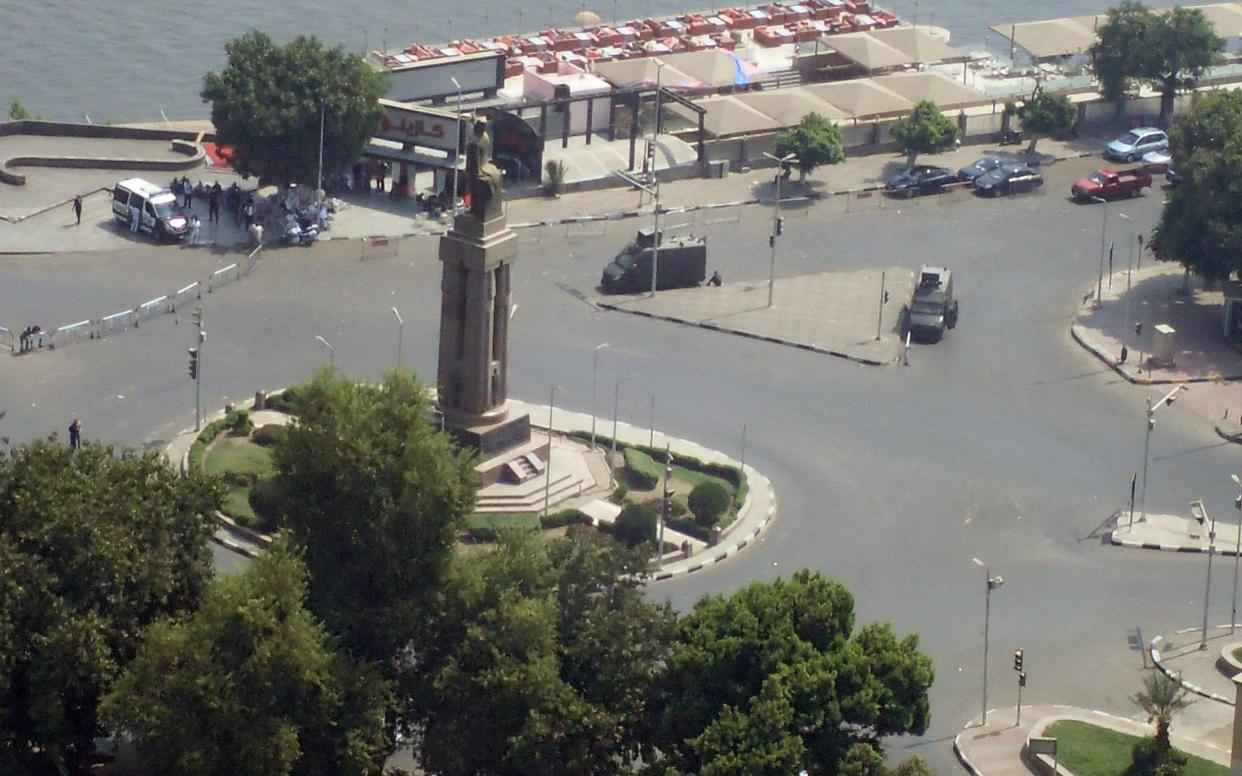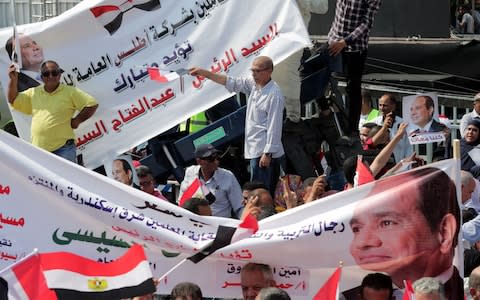Cairo on lock-down as Egyptian government tries to head off anti-Sisi protests

Egypt's government put central Cairo on lockdown Friday as it tried to head off protests against President Abdel Fattah el-Sisi but was unable to stop scattered demonstrations in other parts of the country.
In an effort to prevent a repeat of last week’s protests calling for Mr Sisi’s overthrow, Egyptian forces sealed off Cairo’s Tahrir Square and blocked several of the main bridges over the Nile. Military vehicles rumbled through otherwise largely empty streets.
But demonstrators reportedly still turned out on Warraq, a rural island in the Nile near downtown Cairo, where they chanted for Mr Sisi to resign. Government forces fired tear gas and buckshot to break up the protests, according the Mada Masr new site.
Videos showed also demonstrators in Qina, a small city south of Cairo, trampling on government posters and deriding Mr Sisi as “the date”, a mocking nickname referring to the president’s thinning hair.
The protests were sparked by a series of videos from Mohamed Ali, a former state building contractor now living in exile in Spain. He has alleged widespread corruption in Mr Sisi’s government and has become an unlikely resistance figure with his calls for revolution.
تمزيق لافتات تأييد للسيسي في قوص بقنا صعيد مصر pic.twitter.com/cdRyWAh5cu
— Amr Elqazaz (@amrsalama) September 27, 2019
By sundown on Friday, the mass protests that Mr Ali called for had failed to materialise, despite his last-minute videos urging people to take to the streets against the president. “Enough with the humiliation,” he said. “Get rid get rid of him today. This is your historic chance.”
However, last Friday’s protests did not begin until after nightfall, when youths in Cairo, Alexandria, Suez, and other cities demonstrated.
Mr Sisi, arriving back in Cairo from a week at the UN in New York, said the protests were the work of conspirators trying to damage Egypt. “It is a war between us and them,” he said.
The government staged several large pro-Sisi demonstrations, including one near Rabaa Square, where Mr Sisi’s forces killed a thousand people in a single day in August 2013 while breaking up a sit-in by Islamist protesters.

The security forces have arrested around 2,000 people since last Friday's protests, including prominent lawyers and academics. At least 76 have been “disappeared”, meaning they were arrested but authorities are denying they are in custody, according to the Egypt Commission on Rights and Freedoms, a human rights group.
The top Democrat and Republican on the House foreign affairs committee put out a joint statement calling on the government to allow peaceful protests to go ahead. “Egyptians have the right to protest peacefully and to exercise that right without fear of retribution,” they said.
The government postponed a football match between FC Masr and Aswan FC on security grounds, in an apparent effort to prevent crowds from gathering during the game and turning into a demonstration.

